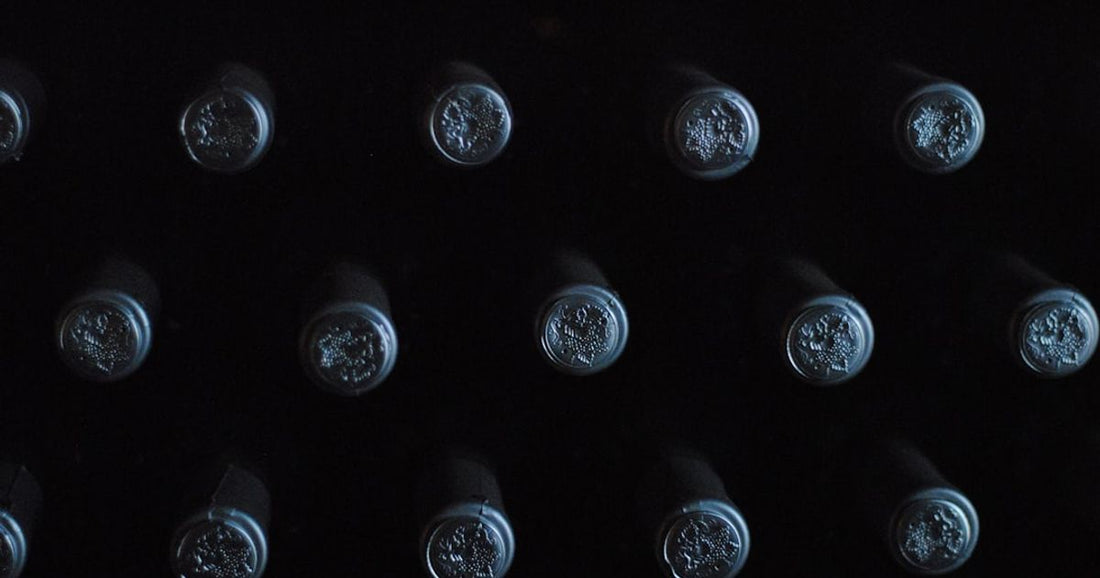
Biodynamic White Wines You Should Know
Share
In the vast and varied world of wines, biodynamic white wines hold a special place for those who seek not only quality and taste but also sustainability and harmony with nature. Biodynamic farming is a step beyond organic, incorporating holistic practices that treat the vineyard as a self-sustaining ecosystem. This approach to viticulture ensures that the wine in your glass is a product of meticulous care for the earth as much as it is of winemaking craftsmanship. For conscious consumers looking to explore sustainable sips, discovering the world of biodynamic white wines is both an adventure and a commitment to supporting practices that respect our planet. This guide will introduce you to some of the best selections of biodynamic white wines, unraveling the stories behind them and why they deserve a place in your wine collection.
Key Takeaways
Before diving into the depths of biodynamic white wines, let's highlight some key takeaways that will be covered in this comprehensive guide:
- Understanding the principles of biodynamic farming and how they translate into the quality and character of white wines.
- Discovering a curated selection of biodynamic white wines that stand out for their exceptional taste and sustainable production methods.
- Learning about the winemakers and vineyards behind these remarkable wines, and their commitment to biodynamic practices.
- Tips on how to enjoy and pair biodynamic white wines to enhance your tasting experience.
- Insights into how choosing biodynamic wines contributes to a healthier planet and supports ethical winemaking.
What Makes Biodynamic White Wines Unique?
Biodynamic agriculture is a holistic approach to farming that views the farm or vineyard as a self-contained ecosystem. This method goes beyond organic farming by incorporating cosmic rhythms and preparing specialized composts and herbal sprays to enhance the vitality of the soil and plants. But what does this mean for the wine in your glass?
Principles of Biodynamic Viticulture
Biodynamic viticulture is grounded in the principles set forth by Rudolf Steiner in the early 20th century. It emphasizes the importance of soil health, biodiversity, and ecological balance within the vineyard. Biodynamic farmers use a calendar that considers lunar and cosmic cycles to guide their work, from planting to harvesting. This meticulous attention to the rhythms of nature is believed to result in grapes that are not only healthier but also more expressive of their terroir.
The Taste of Terroir
One of the most compelling aspects of biodynamic white wines is their ability to convey the essence of their terroir. The term "terroir" refers to the unique combination of factors, including soil, climate, and topography, that gives a wine its distinctive character. Biodynamic practices, by enhancing soil health and vine vitality, allow for a purer expression of terroir in the wine. This results in white wines that are not only delicious but also deeply reflective of their origins.
Spotlight on Biodynamic White Wines
Exploring biodynamic white wines can be a journey of discovery, with each bottle telling a story of place, passion, and purpose. Here are some notable biodynamic white wines that exemplify the best of what this sustainable approach to winemaking has to offer.
Domaine Zind-Humbrecht: A Pioneer in Alsace
Domaine Zind-Humbrecht, located in Alsace, France, is a leading figure in biodynamic viticulture. The Humbrecht family has been making wine since 1620, but it was Olivier Humbrecht, one of the first winemakers in the world to obtain the Master of Wine qualification, who steered the estate towards biodynamic practices in 1997. Their Rieslings, Gewurztraminers, and Pinot Gris are renowned for their depth, complexity, and unmistakable expression of Alsace terroir.
Frey Vineyards: California's Biodynamic Trailblazer
Frey Vineyards in Mendocino County, California, was the first in the United States to be certified biodynamic. As pioneers of organic and biodynamic winemaking in North America, the Frey family crafts a range of white wines, including Chardonnay and Sauvignon Blanc, that are vibrant, pure, and full of character. Their commitment to sustainability extends beyond the vineyard, with eco-friendly practices in every aspect of their operation.
Embracing Biodynamic White Wines
Adopting biodynamic white wines into your repertoire is not only a choice for quality but also a statement of support for sustainable winemaking practices. Here's how to get the most out of your biodynamic wine experience.
Tasting and Pairing Tips
Biodynamic white wines, with their nuanced flavors and vibrant acidity, are incredibly versatile for pairing with food. Consider the wine's body, acidity, and aromatic profile when matching it with dishes. Lighter, crisp wines like Sauvignon Blanc pair beautifully with fresh salads and seafood, while richer, more aromatic wines like Gewurztraminer are excellent with spicy Asian cuisine.
Supporting Sustainable Winemaking
By choosing biodynamic white wines, you contribute to a movement that prioritizes the health of the planet and the well-being of future generations. Look for certifications like Demeter, the global biodynamic certification body, to ensure that the wines you select are genuinely biodynamic. Supporting these winemakers helps to sustain practices that are in harmony with nature and promotes biodiversity in vineyards.
Conclusion
Biodynamic white wines offer a unique and meaningful way to enjoy the fruits of the vine. They are not just beverages but expressions of a commitment to sustainability, quality, and the intricate dance between humans and the earth. As you explore the world of biodynamic white wines, you'll discover that each bottle tells a story of place, passion, and purpose—a story that you become a part of with every sip. Whether you're a seasoned wine connoisseur or a curious newcomer, biodynamic white wines provide a path to deeper appreciation and enjoyment, all while supporting a healthier planet.
In your journey through the world of wines, don't forget to explore other facets of this fascinating universe. Whether you're interested in rare white wines, dry white wine varieties, choosing the right red wine, developing a systematic approach to wine tasting, or understanding the role of soil health in sustainable winemaking, there's always more to learn and experience. Embrace the journey, and let your palate be your guide to the incredible and ever-evolving world of wine.



